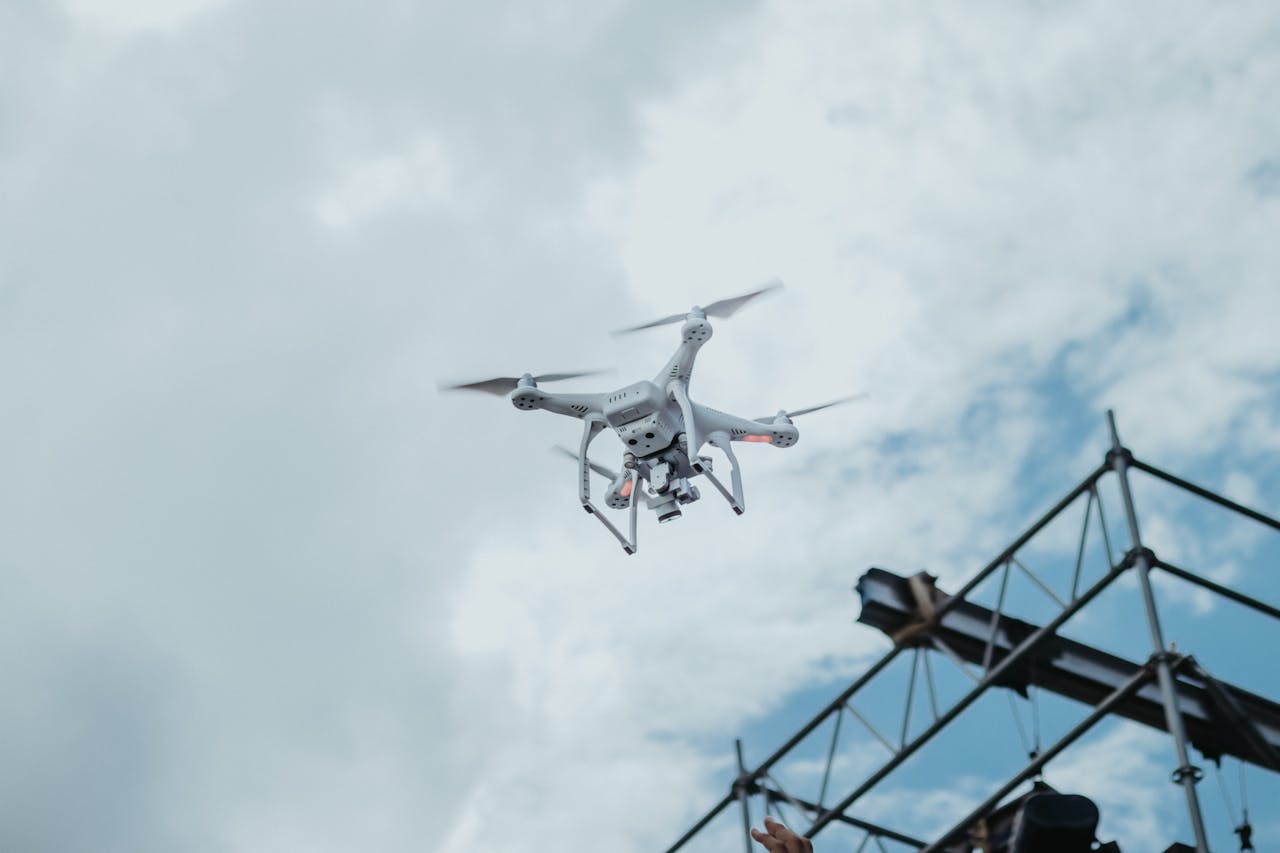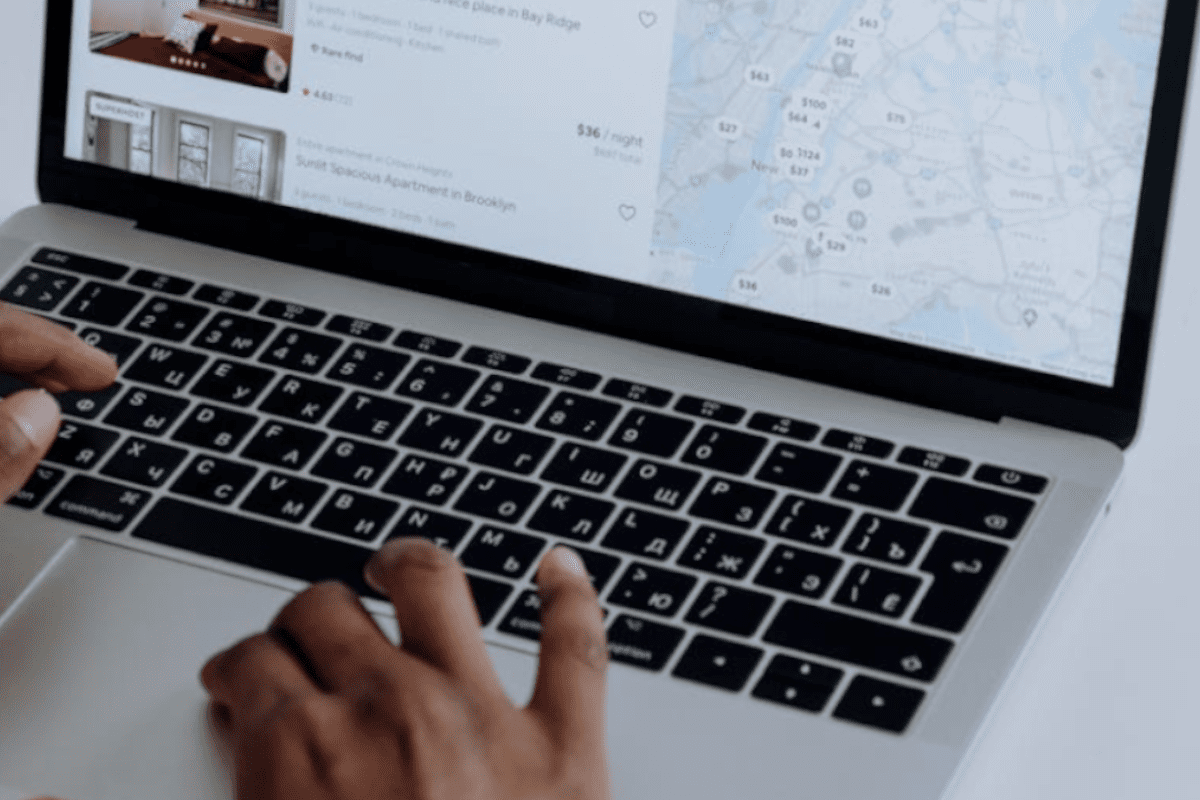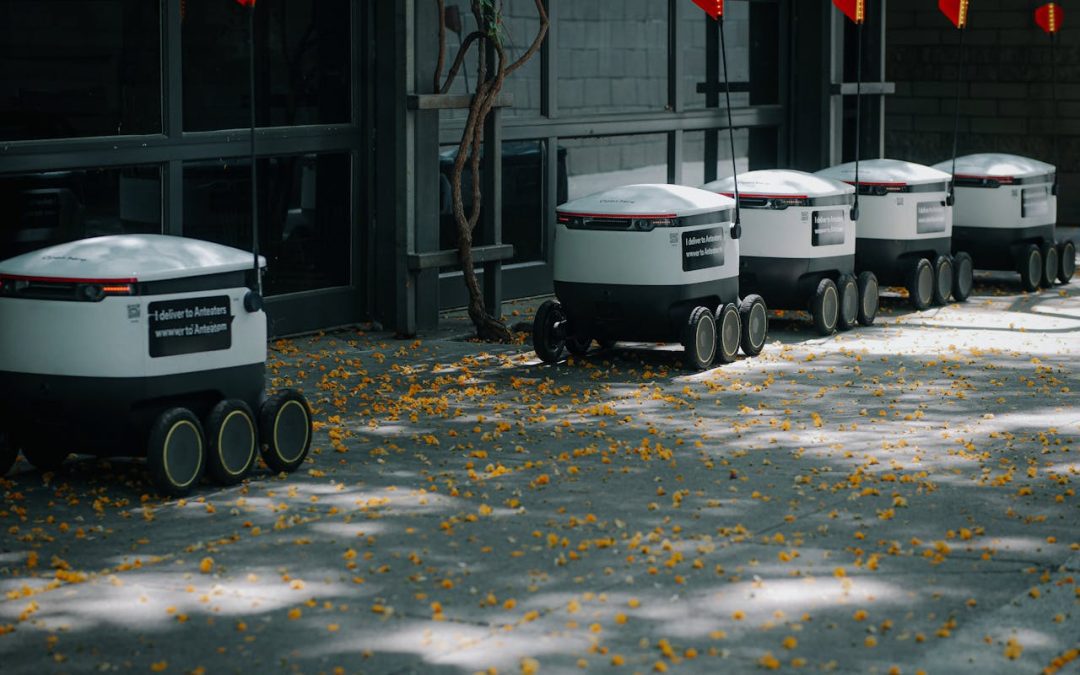Like the Roomba made hoovering easier, tech is rapidly transforming the whole freight industry from start to finish.
If you think logistics is a slow-moving beast, you are wrong!
Here’s some of the cutting-edge tech that’s changing the industry – and how it could work for you.
Blockchain
Blockchain was originally created for the cryptocurrency Bitcoin but has since been applied across various other industries, including the freight world.
In simple terms, blockchain is a decentralised digital ledger that records transactions across a network of computers. The data is tamper-proof and can be seen by anyone within the network.
Using Blockchain in freight means that every part of the supply chain can be seen and tracked extremely efficiently.
Here’s how it’s transforming freight:
Increased Transparency And Efficiency
Blockchain provides complete transparency when tracking goods throughout the supply chain. From manufacturing to delivery, all stages of getting your goods from A to B are recorded on the blockchain, giving real-time data to all parties throughout.
Reduced Fraud Potential
Blockchain is tamper-proof. That means that transactions and events cannot be edited, only added to, helping to prevent disputes and fraud by ensuring the integrity of freight documents.
Secure And Auditable Documentation
Helpful for all freight transactions but particularly ideal for high-value goods that need careful monitoring, blockchain streamlines the documentation side of moving freight. Paperwork including customs documents, certificates of origin and BoLs are digitised and stored on the blockchain, meaning documents can’t get lost and are less likely to be incorrect.
Automation/Robotics
You aren’t alone if your mind immediately went to driverless trucks. Though those are getting closer, too, we’re focusing here on warehouse robots.
How it’s transforming freight:
Faster, More Efficient Warehousing
Robotics technology used in warehousing automates all of the mundane repetitive tasks like picking, packing and palletising. Using technology in this way increases efficiency and reduces business spend on warehouse staff wages.
Reduction In Human Error
Warehouse robots are programmed to perform their tasks with accuracy and consistency, and have been rigorously tested to ensure they meet a high standard.
Risk Prevention
The handling of hazardous and heavy goods, and the execution of more challenging tasks, can be handed over to warehouse robots to reduce safety risks in the warehouse setting.
Drone Delivery
Drone delivery operations are gaining popularity for the transportation of many types of goods, including groceries, parcels and medicines. Drones are accurate, fast, have low operational costs and are eco-friendly to run.

AI And Big Data
AI tech is getting smarter every day, and it’s now being harnessed by global shipping giants.
AI is transforming freight in multiple ways. Here are our top three:
Real-Time Tracking
Efficient tracking and predictive analytics ensure shippers know exactly where their goods are and when they’ll arrive at their destination.
Demand Forecasting
AI algorithms can forecast demand for freight services by analysing historical sales data and trends. Accurate forecasting information provides companies with several advantages and helps them stock up at the right times of the year to satisfy their customers.
Optimised Delivery Routes
Want to reduce fuel costs and get goods delivered faster? AI technology can analyse past traffic patterns and weather conditions, among other data pools, to help you get the most out of route planning and scheduling.
Interested in learning more about what AI brings to the freight table? Read more here.
IoT (Internet of Things)
IoT refers to a network of interconnected devices that talk to each other without human operation. And from sensors on trucks to smart packaging, connected devices are becoming the norm in the freight world.
How it’s transforming freight:
Tracking And Proactive Alerts
IoT uses GPS and RFID technologies to keep track of shipments 24/7. Companies harnessing the capabilities of IoT benefit from enhanced route management and can respond much faster to any problems that arise during transit.

Efficient Monitoring
Smart sensors and packaging can be used to monitor the condition of cargo. This is extremely beneficial for perishable goods, fragile items and pharmaceutical products because they are often susceptible to changes in temperature and humidity. Tracking conditions helps to ensure cargo is kept safe during its journey to its destination.
Improved Eco-Efficiency
Data surrounding fuel consumption and engine performance can be collected by sensors in freight vehicles and used to optimise driving behaviour and improve route planning.
Improving Supply Chain Visibility
IoT traceability systems provide all parties involved with a detailed record of every transaction during a shipment. This supports transparency, trust and visibility throughout the supply chain and ensures compliance with rules and regulations.
Using IoT technology, your clients can see more, and that means they worry less.
Technology Takes Freight From Good To Great
Technology won’t replace the human touch completely – at least not for a long time! – but it’s a superpower when it comes to good freight forwarding. Businesses that work with freight forwarders who embrace these technologies have a clear advantage over competitors.
Want to learn more about how Millennium harnesses technology? Looking for logistics solutions but not sure where to start? Contact us today.

